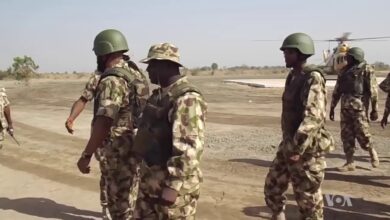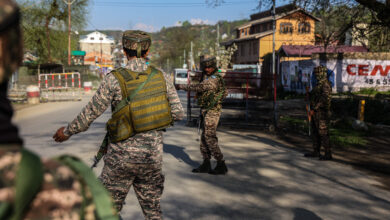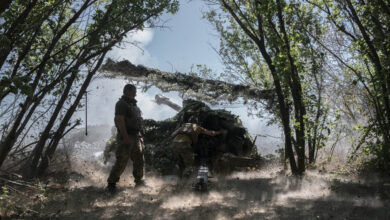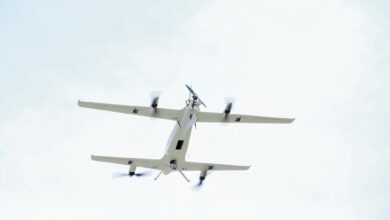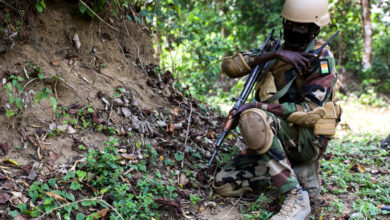Islamic State claimed fighters from its West Africa Province affiliate on Monday attacked a military base in Gajiram in northeast Nigeria.
In a Wednesday, June 19 statement, ISIS claimed 12 Nigerian solders were killed and others injured when ISWAP fighters attacked “a barracks of the apostate Nigerian Army” in Gajiram. It said three armored vehicles, “tanks” and four-wheel-drive vehicles were destroyed and the base was burned, and that weapons, ammunition and 4×4` vehicles were captured.
Nigerian military spokesperson Colonel Ado Isa confirmed to Channels TV on Tuesday that troops in Gajiram had an “encounter” with insurgents but did not provide details.
Security sources and residents told AFP on Tuesday that 15 soldiers were killed when late on Monday, June 17 insurgents suspected to be from the ISWAP faction of Boko Haram in nine armored trucks overran the base and looted nearby Gajiram town, around 70 km (44 miles) north of Borno state capital Maiduguri.
“They dislodged troops from the base after a fight,” a security source told AFP. “We don’t know the extent of damage and looting in the base. An assessment is being carried out.”
Soldiers were seen returning to the town from the bush on Tuesday morning.
“Fifteen bodies of soldiers have so far been recovered in a search and rescue operation,” a military officer, who asked not to be named, later told AFP. “This figure could change as the operation is still ongoing and many troops remain unaccounted” for.
The Cable reported on Wednesday that at least 28 soldiers were killed, without giving clear sourcing.
Residents told AFP the insurgents drove into the town after sacking the base and looted shops, and that some residents fled into the bush while others shut themselves in their homes.
“The gunmen drove into the town around 6 p.m. after overpowering soldiers in the base,” Gajiram resident Mele Butari said.
“They stayed for almost five hours. They broke into the shops and looted food supplies and provisions,” he said. “They didn’t hurt anyone and they made no attempt to attack people who fled into the bush or hid indoors.”
Traffic on the main road through Gajiram was suspended on Tuesday as soldiers assessed the damage in the base, said residents who returned to the town. Gajiram lies on the highway linking Maiduguri and the garrison town of Monguno, which is 50 km further east towards Lake Chad.
Sahara Reporters, which first reported the Gajiram attack on Monday, reported on Tuesday that the large base at Monguno was also attacked. According to the report, at least five soldiers were killed when insurgents in around 30 vehicles raided the base, and the militants captured weapons and ammunition and set fire to the base before reinforcements arrived.
Monguno has been repeatedly attacked by insurgents who have made several failed attempts to overrun the large military base located just outside the town, but The Defense Post has been unable to confirm an attack there.

Recent ISWAP attacks north of Maiduguri
Gajiram has been repeatedly attacked by the insurgents. In June last year, ISWAP raided the same base, killing nine soldiers.
Since July last year, ISWAP has intensified attacks on military targets, killing dozens of soldiers and overrunning bases, mainly further east in the Lake Chad area of Nigeria, Chad and Niger where it is the dominant insurgent group. In early June, ISWAP fighters attacked military bases south of Monguno in Marte, Dikwa and Kirenowa.
The regional counter-insurgency Multinational Joint Task Force which comprises personnel from Chad, Cameroon, Niger, and Nigeria, launched Operation Yancin Tafki on February 21 to battle the insurgents. It has said the cross-border operation is aimed at “making islands and other settlements in Lake Chad untenable for Boko Haram Terrorists.”
But the raid on Gajiram is the latest incident in a series of attacks on military bases carried out by ISWAP fighters north of Maiduguri in recent weeks, and Daily Trust reported on Wednesday that the insurgents attacked Gajiram from the direction of Badu, north of the town.
Last week, several troops were killed in an ISWAP attack on a base in Kareto, around 135 km northwest of Maiduguri, not far from the Niger border, according to military sources.
On May 20, at least three Nigerian soldiers were killed in an ISWAP attack on a base in Gubio, around 80 km north of Maiduguri. ISIS claimed 20 soldiers were killed and others injured.
On May 10, ISWAP fighters attacked Forward Operation Base Gajigana, around 45 km north of Maiduguri. ISIS claimed 11 soldiers were killed and others injured and the base was burned. The Nigerian Army later said that only two troops were injured in the attack, and that a number of militants were “exterminated.”
A week earlier, ISWAP militants overran a military base in Magumeri, around 40 km northwest of Maiduguri, holding it for several hours. ISIS claimed that 10 soldiers were killed, and published images of what it said were ISWAP fighters attacking “Mamri.”
The number of military casualties caused in recent attacks is unclear. The Nigerian military seldom comments on the ongoing counter-insurgency operations, and tends to downplay the insurgents’ effectiveness, rarely acknowledging engagements and seemingly understating military casualties and equipment losses.
In one case, after ISWAP fighters in April attacked a Nigerian military base in Sabon Gari near Biu, around 135 km southwest of Maiduguri, the Nigerian Army described reporting on the incident as “unsubstantiated” and “fake,” saying it was the work of “Boko Haram sympathizers.”
A month later on May 24, ISWAP fighters ambushed a convoy that was transporting civilians from Sabon Gari to Damboa. Media reported that between five and 25 Nigerian soldiers died in that attack, but again the Nigerian Army described those reports as “fake news” and denied there had been any attacks on military personnel in Borno state.

Decade-long cross-border insurgency
The jihadist group known as Boko Haram began its bloody insurgency in northeastern Nigeria in 2009, but it has since spread into neighboring Niger, Chad and Cameroon, prompting a regional military response. More than 27,000 people have been killed and two million others displaced, sparking a dire humanitarian crisis in the region. The U.S. assesses that Boko Haram and ISWAP have been responsible for over 35,000 deaths since 2011.
Boko Haram split into two factions in mid-2016. One, led by long-time leader Abubakar Shekau, is notorious for suicide bombings and indiscriminate killings of civilians. Shekau pledged allegiance to ISIS leader Abu Bakr Al-Baghdadi in March 2015, but ISIS central only gives formal backing to the other faction, which it calls Islamic State West Africa Province.
The ISWAP faction, which largely focuses on attacking military and government targets, was led by Abu Mus’ab Al-Barnawi, but in March, audio recordings revealed that ISIS appointed Abu Abdullah Idris bin Umar, also known as Ibn Umar al-Barnawi, as leader. Despite releasing several videos featuring ISWAP since, ISIS has not yet made a public statement confirming the change.
Since May, Islamic State has attributed insurgent activities in the Mali-Burkina Faso-Niger tri-border area to its West Africa Province affiliate, rather than to what was previously known as Islamic State in the Greater Sahara. In a June 15 ISIS propaganda video, ISWAP militants purportedly in Nigeria, Mali and Burkina Faso were shown reaffirming their pledge of allegiance to ISIS leader Baghdadi.
With reporting from AFP



